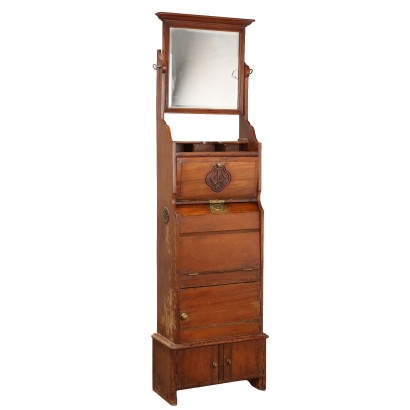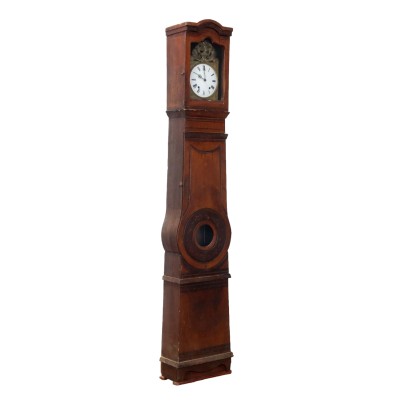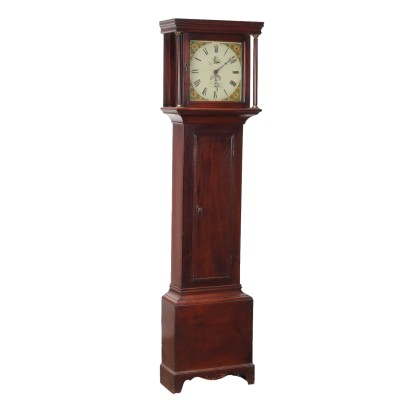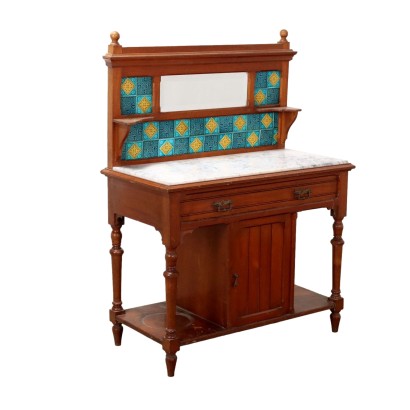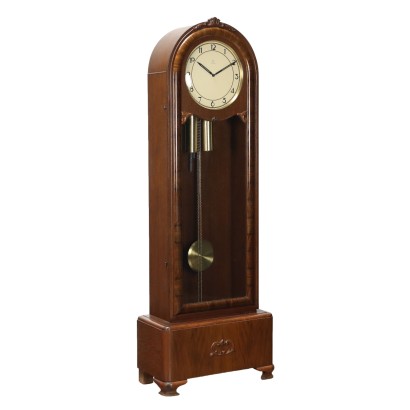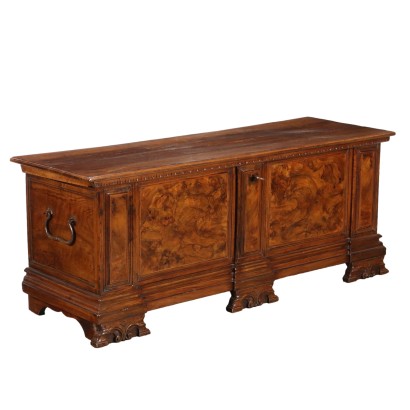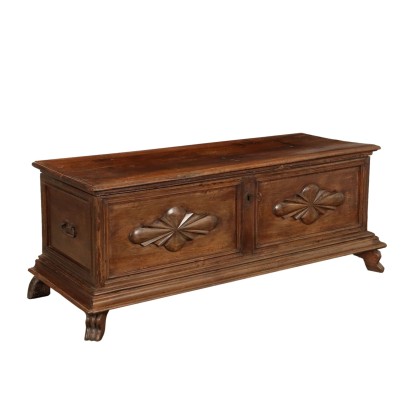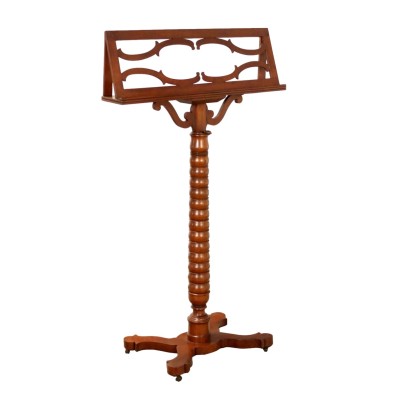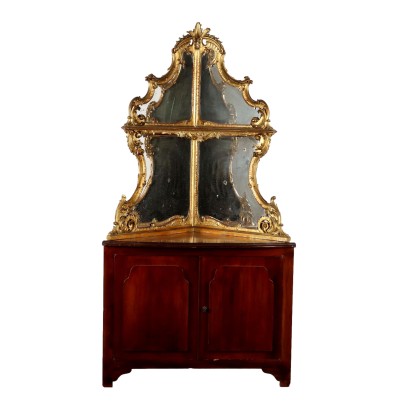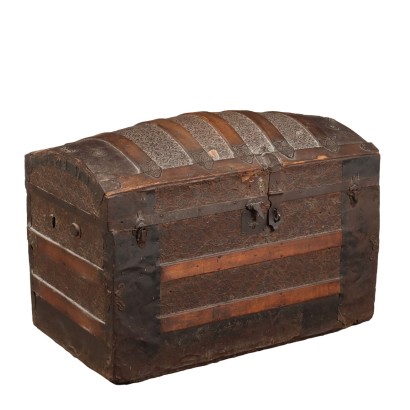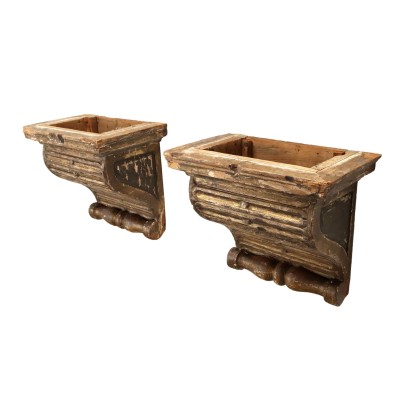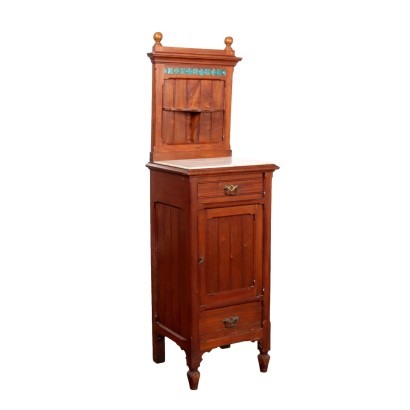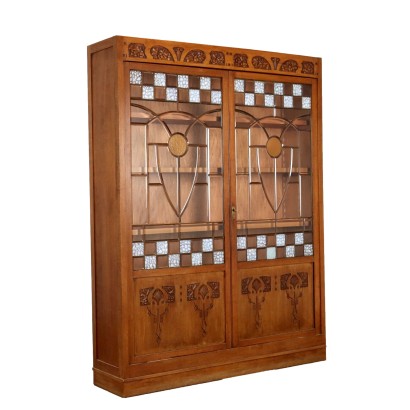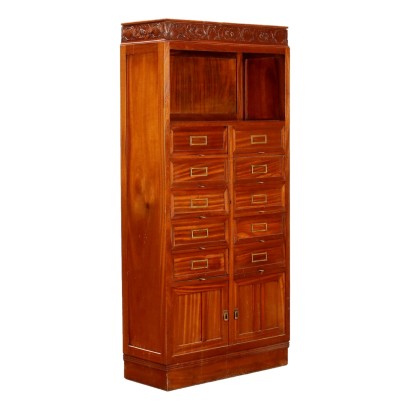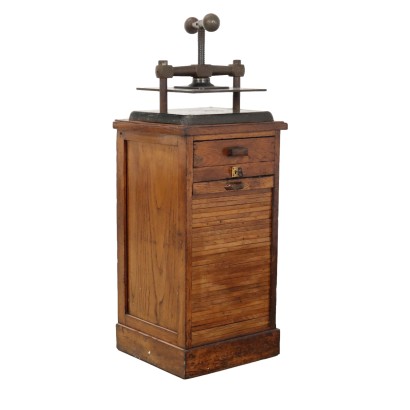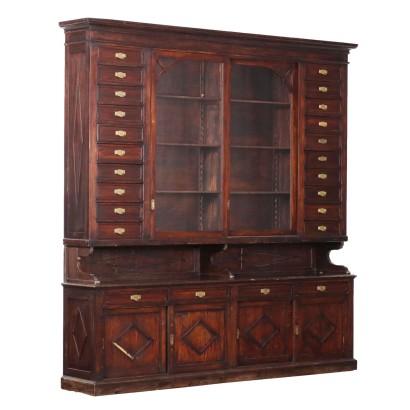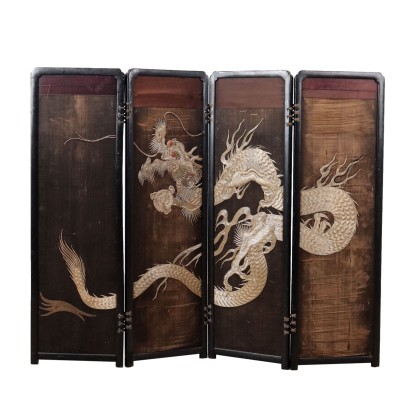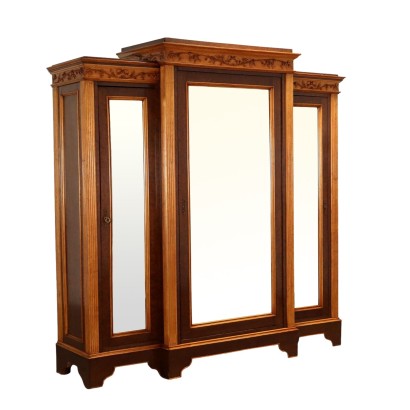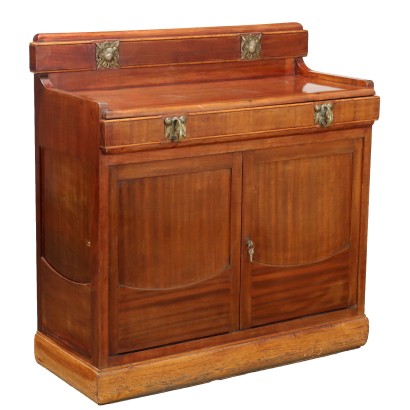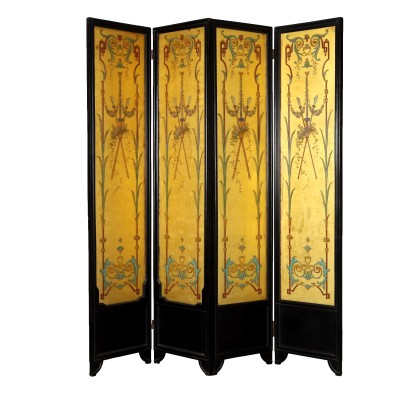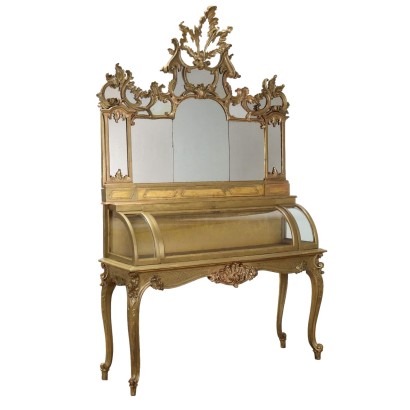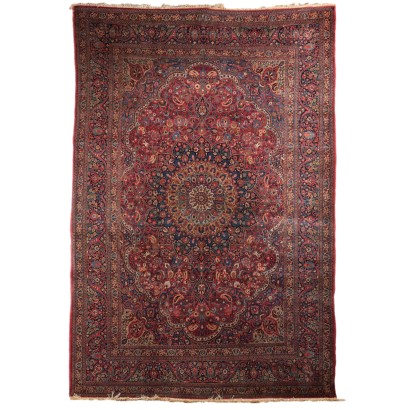Antique Toilet Cabinet Art Nouveau Mahogany Mirror '900 - England, Early XX Century
Features
England, Early XX Century
Style: Art Nouveau (1890-1920)
Age: 20th Century / 1901 - 2000
Origin: England
Main essence: Mahogany
Description
Art nouveaubathroom cabinet in mahogany, has a pair of doors surmounted by a door whose linen compartment is also accessible from the upper flap door. Small folding door carved with a monogram and shelf with accommodation for containers and cruets; in the upper part there is a small psyche with a broken mirror.
Product Condition:
Product which due to age and wear requires restoration and re-polishing. We try to present the real state of the furniture as completely as possible with photos. If some details are not clear from the photos, what is stated in the description applies.
Dimensions (cm):
Height: 193
Width: 55,5
Depth: 27
Additional Information
Style: Art Nouveau (1890-1920)
Historical stylistic period formed from the end of the 19th century (ca. 1890) after the Umbertino style and continued until the First World War.The current was characterized by the floral influence and the soft and curved lines, typical example are the "whiplashes".
The first signs of this new era came from architects such as Hector Guimard (1867-1942) who created numerous buildings and hotels, but also from people such as Arthur Mackmurdo furniture designer and Arthur Liberty industrialist and London merchant of the late 19th century who began to produce furnishing fabrics with floral motifs with soft and sinuous shapes.
The Universal Exhibition of Paris in 1900 was an important point for the development and affirmation of Liberty in the following decade.
Liberty was called in different ways depending on the nation, universally known as Art-Nouveau and it is thought that Arthur Liberty is the origin of the name given in Italy to this beautiful stylistic movement.
The name Art-Nouveau is thought to derive from a shop located in Paris called Maison de l'Art Nouveau which began to show off furniture with a new and innovative design in its windows.
With the end of the First World War, the naturalistic period of Liberty ended and the Art-Decò style appeared, with more rigid and geometric lines.
Find out more about the Liberty style with our insights:
Art Nouveau: birth and development of a style
Milan Liberty between flowers and colors
Carlo Zen's Liberty
Decorative shapes and elegance in an Liberty living room
FineArt: Aeolus and Cupid, Liberty sculpture by Luca Madrassi
FineArt: Nymph and Faun, Liberty sculpture by Giuseppe Siccardi
The Austrian taste of Baroque
Age: 20th Century / 1901 - 2000
20th Century / 1901 - 2000Main essence: Mahogany
It is one of the most precious and sought-after woods in cabinet making. It was discovered in Central America around 1600 and began to be imported to England in the 1700s. Much appreciated for its hardness and indestructibility, it became widespread following the blocking of walnut exports from France in 1720 and the consequent elimination of English import duties on mahogany from the colonies in America and India. The most valuable version comes from Cuba, but it became very expensive. At the end of the 18th century it began to be used also in France in Louis XVI, Directory and Empire furniture, its diffusion declined starting from when Napoleon, in 1810, forbade its import. It was generally used in the manufacture of elegant furniture, due to its characteristics and beautiful grain.Other customers have searched:
Se ti interessano i mobili d'antiquariato Scopri qui tutte le presentazioni dei prodotti d'antiquariato più belli, eleganti e preziosi su FineArt by Di Mano In Mano
Leggi di più
Sull'antiquariato in generale dai un'occhiata anche a:Antiquariato: una sezione per raccontare i mobili antichi che sono arrivati fino ai giorni nostri.
Classic Monday: da un pezzo dei nostri magazzini alla storia dell'antiquariato
L'antiquariato dalla A alla Z: il Dizionario dell'Antiquariato
Il dizionario dell'antiquariato - Lastronatura
Il dizionario dell'antiquariato - Mascherone
Il dizionario dell'antiquariato - Natura morta
Il dizionario dell'antiquariato - Opificio
Il dizionario dell'antiquariato - Pastiglia
Il dizionario dell'antiquariato - Savonarola
Il dizionario dell'antiquariato - Rosone
Intaglio barocco con motivo a ricciolo
Infine, dai un'occhiata alle nostre rubriche di divulgazione sulla storia delle arti decorative e d'arredo:
Epoche
Lavorazioni e tecniche
Mostre ed Eventi
Protagonisti
Product availability
The product can be seen at Cambiago
Immediate availability
Ready for delivery within 2 working days from ordering the product.

